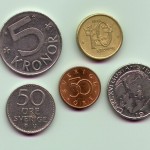This Thursday, June 8, Tesla (NASDAQ:TSLA) and General Motors (NYSE:GM) announced their partnership in the EV charging sector, allowing for GM EV’s to be charged at Tesla stations. This sparked a decline in EV charging companies stock.
In their partnership, GM follows in the footsteps of rival Ford Motor (NYSE:F) by teaming up with Tesla to utilize the latter’s extensive EV charging network. Both Ford and GM plan to incorporate Tesla’s NACS (North American Charging Standard), installing charging ports compatible with Tesla vehicles.
Welcome GM owners to Superchargers across North America⚡️
Details about the North American Charging Standard (NACS) → https://t.co/HTk7Si9qa0 https://t.co/OQqUbM8vuo
— Tesla Charging (@TeslaCharging) June 8, 2023
We're teaming up with @tesla to enhance your electric vehicle experience. More charging stations, less range anxiety, more sustainable journeys. It's about your convenience, not our competition. #EverybodyIn pic.twitter.com/D4joovLjPh
— General Motors (@GM) June 8, 2023
Investors have responded favorably to this partnership in the EV charging industry because they recognize the potential advantages of having a single standard for charging hardware in the North American market. After the news, GM stock increased by more than 3.11%, while Tesla stock increased by 5.80%. In contrast, after the market opened EV charging companies, notably, ChargePoint Holdings, Inc (CHPT) and EVgo (EVGO) both had declines of about 10% each.
The Tesla-GM-Ford alliance holds significant commercial and public policy implications. The Biden administration has made it a requirement for companies to adopt a rival “combined charging system” (CCS) standard to qualify for federal subsidies for new charging stations along major roadways. However, the collaboration between Tesla, Ford, and GM challenges the administration’s directive.
Transportation Secretary Pete Buttigieg acknowledged in May, after the Ford-Tesla deal, that the industry will eventually converge on a single charging system. Adapters can facilitate cross-usage between different standards. Despite the current divergence, the industry is expected to move towards a standardized system over time.
Tesla, GM, and Ford collectively account for approximately 70% of current EV sales in the United States. Industry executives recognize that varying EV charging connectors pose a barrier to broader consumer adoption of electric vehicles. Therefore, the partnership between these leading automakers has the potential to address this issue and drive further EV market growth.





